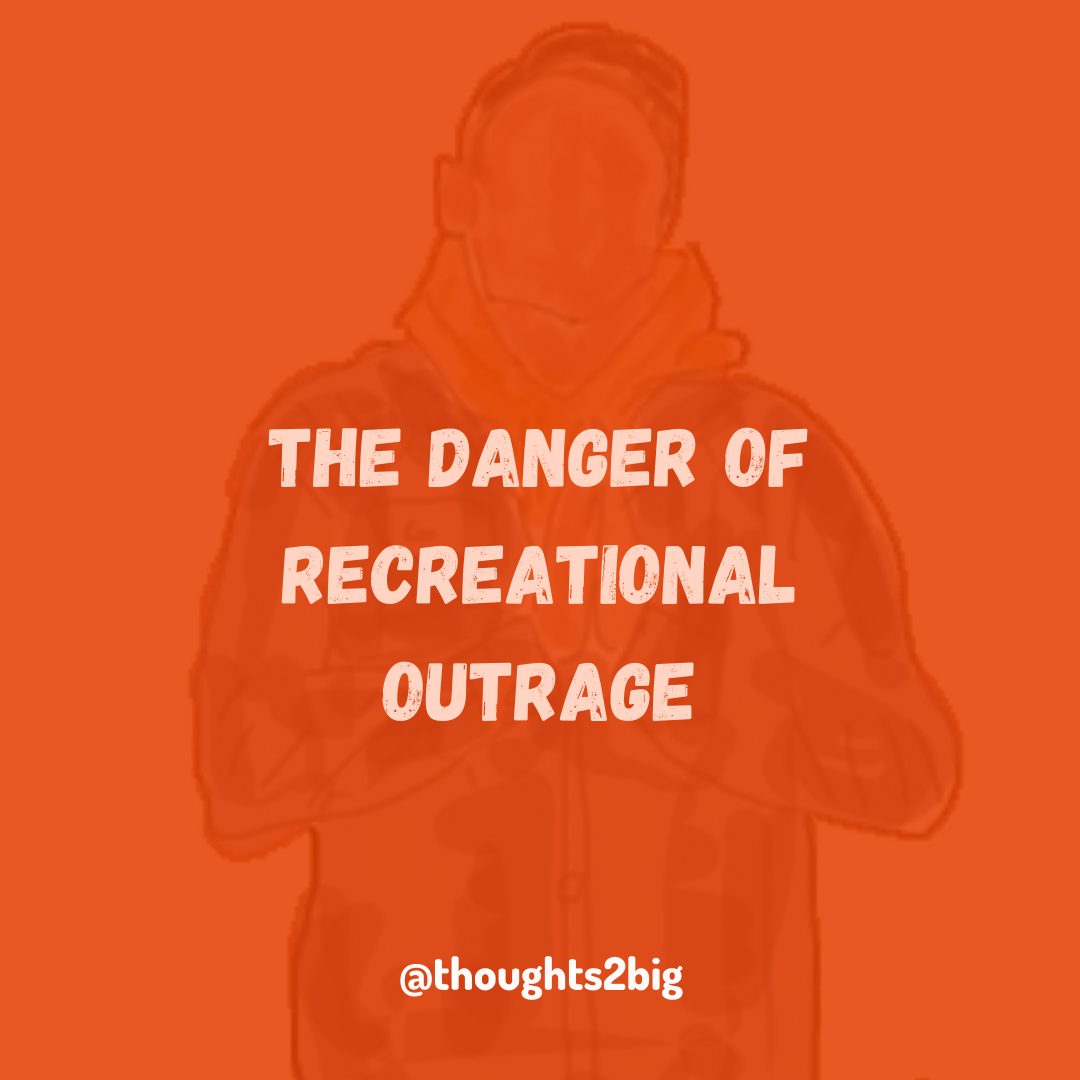The Danger of Recreational Outrage

This blog has a longstanding record of addressing difficult topics. This is done mainly because a lot of us have thoughts on such things but are reluctant to speak on them due to fears of backlash and attacks from the loud mob online. However, many of these things affect our mental health, and so it would be remiss if I didn’t talk about them here due to such fears.
Recreational Outrage is a term referring to the pseudo-anger people display online in exchange for serotonin. Social media rewards anger, as the most popular posts are usually emotionally-driven. This causes our brains to link feeling good to negative emotions, and in turn this may cause us to seek out anger, resentment and even hatred in order to feel good.
On top of this – our brains love nothing more than to belong to a group. And so when we see other people being angry at a specific target on social media, we want to join in to feel part of the movement. We rarely have all the details before we do this. Rather, we see a group attacking a person or group of people and jump on the bandwagon in order to reap some of the easily attainable anger-induced serotonin.
The reason recreational outrage is a problem for mental health is that it causes us to seek out being angry more often in order to feel better about ourselves. It also reduces our ability to have nuanced opinions, and instead we have binary views on complex issues. We don’t think there are any other opinions which are valid other than our own. We begin to hate openly without even attempting to understand where the other side is coming from.
You can get a picture of the type of person I’m describing – they’re never fun at parties.
Take the Joe Rogan debacle, for example. Many of the radical left hate this man because he has the most popular podcast on earth, one which doesn’t align exactly with the opinions they believe to be correct. And it’s a difficult thing to be able to accept that the most popular thing on the planet isn’t perfectly aligned with the things you believe. So they hate it for that reason. There is no thought given before firing out tweets of hatred in order to stand in solidarity with the mob.
But the question remains – do people really care?
People get angry about a myriad of things online every single day. But how many of those people actually care, and how many of them are attempting to tweet the ‘correct’ things for their share of cheap serotonin?
Because it seems to me that people, more often than not, don’t actually care about the causes they spew about online. They virtue-signal their outrage, and then they got on with their day. There is no real concern which makes it all a bit disingenuous.
This is a growing mode of behaviour and it is being normalised. But it is detrimental to our collective mental health because it pits us all against each other. We become more reluctant to speak to people with differing opinions, and we oftentimes hate other people because these disagree with us. We’re turning into monsters because we refuse to be open to being incorrect.
Something to think about,
Daragh